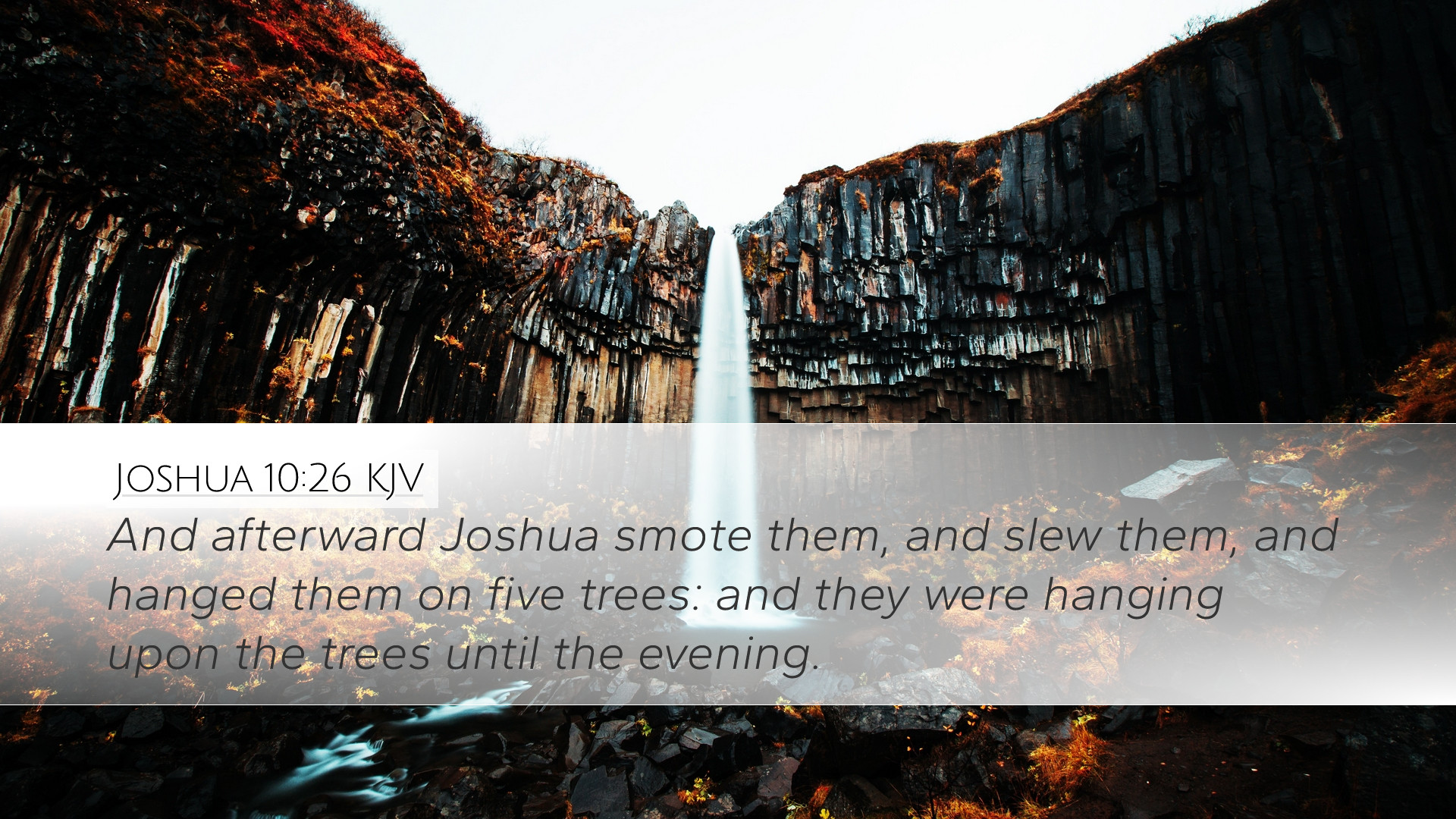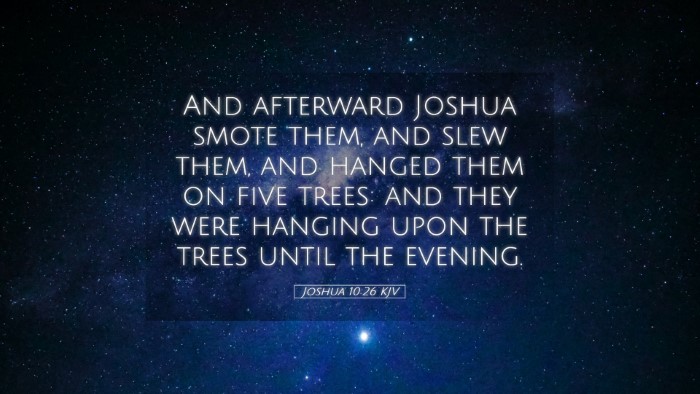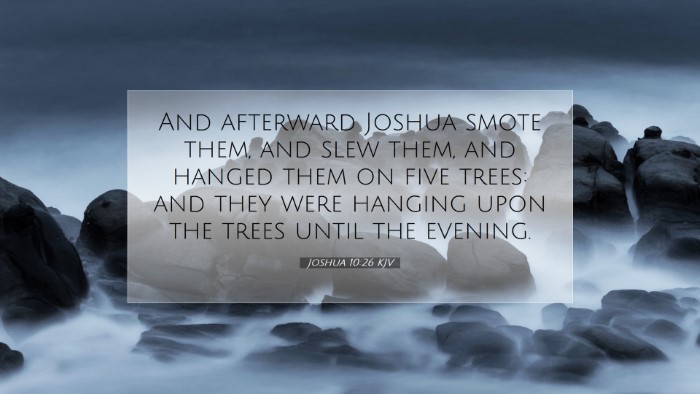Bible Commentary on Joshua 10:26
Verse: "And afterward Joshua smote them, and slew them, and hanged them on five trees: and they were hanged upon the trees until the evening."
Introduction
Joshua 10:26 narrates a significant moment in the conquest of Canaan, illustrating themes of justice, divine retribution, and the seriousness of opposing God’s chosen people. This passage has been subject to extensive analysis by theologians and Bible scholars, examining the implications of Joshua's actions and the broader context within which they occur.
Contextual Analysis
To fully understand this verse, it is crucial to contextualize it within the broader narrative of the Israelite conquest of Canaan. The preceding chapters describe the miraculous victories under Joshua's leadership, particularly the dramatic episode of the sun standing still. The defeat of the Amorite kings symbolizes God's sovereignty and the fulfillment of His promise to Israel.
Historical Background
According to Matthew Henry, this event is situated after Joshua’s decisive battle with a confederation of Amorite kings. Following the victory, the kings seek refuge in a cave, demonstrating their fear of Israel’s God. This act of capturing and executing the kings conveys the totality of Israel's victory and serves as a powerful lesson on the consequences of rebellion against God's plans.
Theological Insights
From a theological perspective, this verse conveys profound truths about divine justice and retribution. Adam Clarke explains that the hanging of these kings serves not merely as punishment but also as a deterrent to others. The public display of defeated enemies was intended to instill fear and to illustrate the seriousness of opposing the God of Israel.
Justice and Retribution
“The wages of sin is death” (Romans 6:23) resonates throughout scripture, and this event serves as a historical reflection of that principle. The actions of the kings led them to a point of no return, illustrating the finality of their rebellion. Albert Barnes notes that their punishment was both a judicial act and a means of ensuring that God’s justice was publicly recognized.
The Symbolism of Hanging
Hanging as a form of execution demands a deeper examination. According to Jewish law, hanging was reserved for those who had committed particularly heinous offenses (Deuteronomy 21:22-23). Thus, the action of hanging the defeated kings symbolizes not only their disgrace but also serves as a stark warning of the consequences faced by those who rebel against God. Henry speaks to the notion that their bodies hanging in shame would deter future rebellion.
Application for Today
For contemporary readers, this passage poses challenging questions about justice and how it is enacted in a modern context. Pastors and scholars are called to reflect on how these ancient texts inform our understanding of justice today. Is God’s justice meted out through societal laws, or does it take on a spiritual nature beyond human remediation?
Moral Implications
In light of this passage, a critical moral implication arises: the need for leaders, both in secular and ecclesiastical settings, to execute justice wisely and with an understanding of divine principles. The act of punishing evil must be done thoughtfully to ensure it aligns with God's will and reflects His character of righteousness.
Conclusion
Joshua 10:26, while an account of an ancient military conquest, serves as a powerful reminder of the consequences of disobedience to God and the importance of justice. Scholars, students, and pastors can derive meaningful insights from this passage, recognizing that God's retribution is not merely punitive but serves a higher purpose in His divine plan.
Reflection Questions
- How can we understand the concept of divine retribution in light of Christ’s teachings on mercy and love?
- In what ways can the church reflect God's justice in society today?
- What does this passage teach us about the gravity of opposing God’s purposes?


